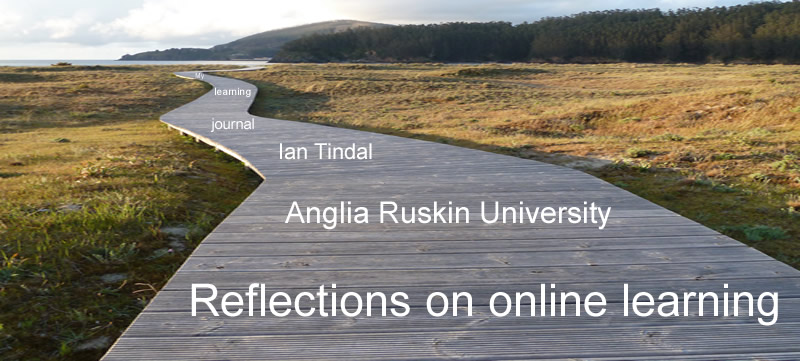Siemens (2004) posited that extending personal networks leads to the amplification of knowledge and understanding and this is driven by the small efforts of many contributing to the larger efforts of a few and all contributing to the accumulation of shared knowledge. Downes (2012) asserts that knowledge lies within networks be they neural, human or machine, he identifies four mechanisms integral to this process: similarity, contiguity, feedback and harmony. In my experience these are powerful forces and in today's connected society social media such as Twitter, blogs, Facebook and Youtube is where much of today's knowledge is generated, communicated, challenged and affirmed.
In my opinion Twitter is the key portal through which to access the cutting edge of connected knowledge. It is a vibrant hive of shared information and dialogue. If you follow the right people and tweet / retweet the right things you can rapidly develop a local and global footprint. I have been added to Twitter lists in Europe, Australia and the US. My activity is relatively minor.
I spend perhaps 15-30 minutes a day browsing Twitter in short visits, my phone pings when there is activity relating to my Tweets and I tend to respond straight away but that only takes seconds to do. High-level users will spend more time identifying a target audience and generating material likely to provoke follows from many thousands of people. I have seen educational accounts with over 100k followers, these are often manned by a team rather than being individual accounts. It is also possible to buy follows and interactions by the tens of thousands so it can be difficult to be sure who is influential and who is financing their social presence beyond its real sphere of influence.
I also run several blogs and gain around 1000 views a month despite not really promoting them. On some days there are spikes where several hundred hits happen over a few hours. I know some of my learning journal blog posts are used on MOOCs and other courses as I have talked to some who have visited it. The graphic below indicates the geographical extent of my blog readership over the last 4 weeks. During the previous 4 weeks it was dominated by Eastern Europe.
I created two public Twitter lists for personal research and for use by my students via embedding on the VLE. I add to them on a daily basis as I come across interesting folk. Students and people I don't directly know have contacted me to say how useful the lists have been to them.
https://twitter.com/iantindal/lists/education-leadership used on MBA Educational Leadership and Management
https://twitter.com/iantindal/lists/outdoor-learning Primarily created for my research journal blog but also used on an Outdoor Play Experiences module and would be useful for any modules on outdoor play or learning as it currently links over 100 practitioners, organisations and academics in the field.
In my experience journals are increasingly distanced from the heart of academic rhetoric, their readership is tiny and many argue that in a rapidly evolving world papers can be out of date by the time they are published. Trust in published sources is diminished as evidenced by almost daily accounts in the media of publications that were unreliable, some of these are based on research that was backed by commercial funding although that does not always mean output is not legitimate and objective. The unfounded proposed benefit of drinking a glass of red wine a day claim is a good example, others include the discredited learning styles theory, the discredited advice about avoiding dairy products, conflicting advice about the the role of salt, fibre, fruit, meat, sugars and a host of claimed antioxidants in our diet. The impact of such published research can be far reaching for producers and consumers, it is important that it is based on large scale, systematic and replicable study and carefully scrutinised. The acid bath stem cell publication 'Stimulus Triggered Acquisition of Pluripotency' peer reviewed and published in Nature then debunked and retracted 5 months later is another example. Only a small proportion of research appears to be replicable, this is understandable with contextualised social research but less so with scientific studies.
Today's challenge appears to be to identify who is a reliable source and to check the social discourse about their ideas to see what other professionals make of them. In an open access online world peer review is public and can involve many in ongoing debate, this would seem more valuable than traditional journal peer review that is private and largely just from two reviewers who will not infrequently have limited expertise and sometimes provide directly contrasting views as to what is valuable and what needs to be developed in a draft paper.
Today's challenge appears to be to identify who is a reliable source and to check the social discourse about their ideas to see what other professionals make of them. In an open access online world peer review is public and can involve many in ongoing debate, this would seem more valuable than traditional journal peer review that is private and largely just from two reviewers who will not infrequently have limited expertise and sometimes provide directly contrasting views as to what is valuable and what needs to be developed in a draft paper.
We live in an increasingly connected and altruistic academic world, if you are not using social media to communicate your knowledge and to engage in debate in your field then much of the world is missing out on what you are learning. Making use of such opportunities to become part of the connected and open society can only benefit your professional profile and long term career prospects.
Downes, S., 2012. Connective Knowledge Essays on meaning and learning networks. http://www.downes.ca/files/Connective_Knowledge-19May2012.pdf



No comments:
Post a Comment
Note: only a member of this blog may post a comment.